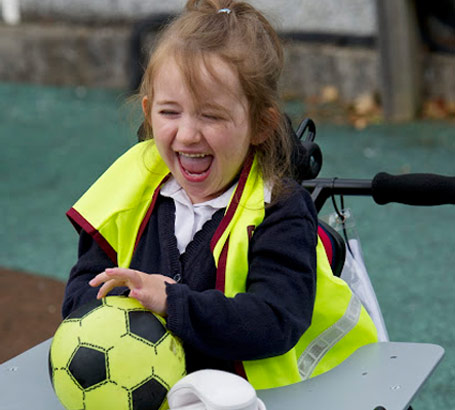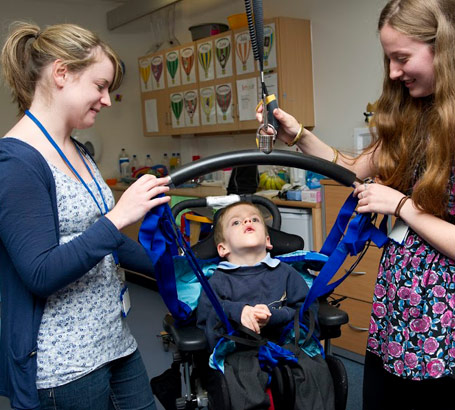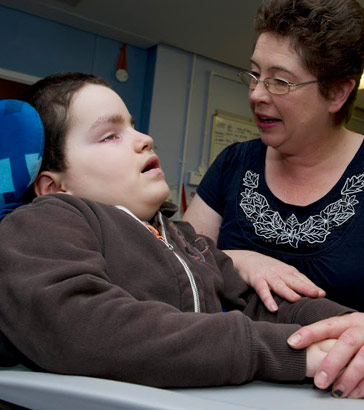
Upon the birth of a child with CLDD, families are
presented, overnight, with a life changing situation. As Thistlethwaite (2010) writes: 'With no warning, they step into unknown
territory, more often with complete strangers as their first point of contact for this new journey.'
However, there is currently a mismatch between our education system and the needs of families. Services have been unprepared
for the growing number of children with CLDD, and the
alterations in service delivery, organisation, curriculum and pedagogy required to meet their needs.
Parents know their child better than anyone else and must be treated respectfully by professionals as equal partners given the expertise they have in the care of their child.
McConkey, Barr and Baxter, 2007
The families of children with CLDD are truly pioneers, charting new pathways in raising their child. They will have created their own care support, therapeutic interventions and educational approaches, based on their deep and rich understanding of their child, long before any school-based professional ever comes into contact with them.
A new family member
The arrival of a new baby is an important life event and is one that is usually eagerly awaited by families. There are
hopes and expectations as families adjust and begin to appreciate the realities of the new arrival and all the changes that
they bring.
Listen to the audio clips of Harvey's father talking about when Harvey and his twin sister were born and the early involvement
of health professionals.
-
 Harvey's birth1:32
Harvey's birth1:32 -
 The involvement of health professionals1:51
The involvement of health professionals1:51

There is a growing evidence-base of the extent of the health needs experienced by children and young people with complex
learning difficulties and disabilities.
Early diagnosis is important to ensure that development is maximised and families enabled to support each other. Early
assessment and identification of their needs is also important to ensure that access to treatments and interventions are
provided.

Read the Royal College of Nursing report on the health needs experienced by people with learning disabilities and make
a list of the health needs of children that you are involved with.
Consider the treatments and teaching interventions provided within your school.
Write a short biography of two children with contrasting health needs that you have been involved with.

Primary care teams are usually the first point of contact when accessing health care. There are a range of primary care
services that can be accessed that are delivered within the practice, such as screening and health promotion.
Access to other health services, such as child health services, necessary to meet the needs of children with complex learning
difficulties and disabilities, are accessed following an assessment by the primary care team members, such as a GP or health
visitor.
Reflect on the needs of children with learning difficulties and disabilities that you are involved with and develop a map
of their health needs and the services required to meet them.

McConkey, R., Barr, O. and Baxter, R. (2007) Complex Needs: The Nursing Response to Children and Young People with Complex Physical Healthcare Need. Belfast: Institute of Nursing Research, University of Ulster/Department of Health.